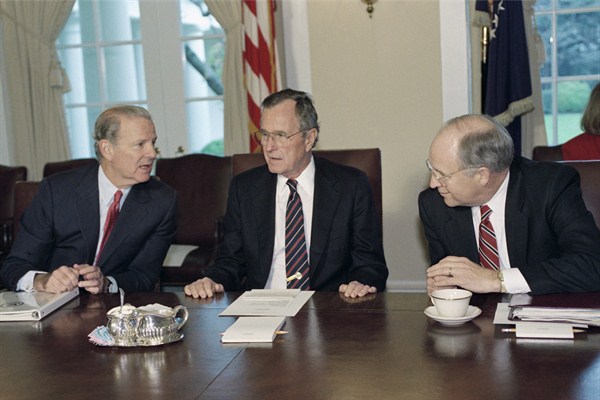George Herbert Walker Bush grasped the importance of the United Nations like no other American president before or since.
The 41st occupant of the White House, who died last week, was U.S. ambassador to the U.N. in the early 1970s. Yet his main contribution to the institution came at the end of the Cold War.
Throughout his single term in office, Bush grappled with the dilemma of how to dismantle the Soviet Union’s empire without sparking a disastrous bust-up with Moscow. He relied on the U.N. to pull off this geopolitical conjuring trick, turning to the Security Council to resolve crises from Kuwait to Somalia. In doing so, he put the U.N. at the center of the post-Cold War order. But he also sowed the seeds for big-power tensions over the U.N.’s global role that persist to this day.

